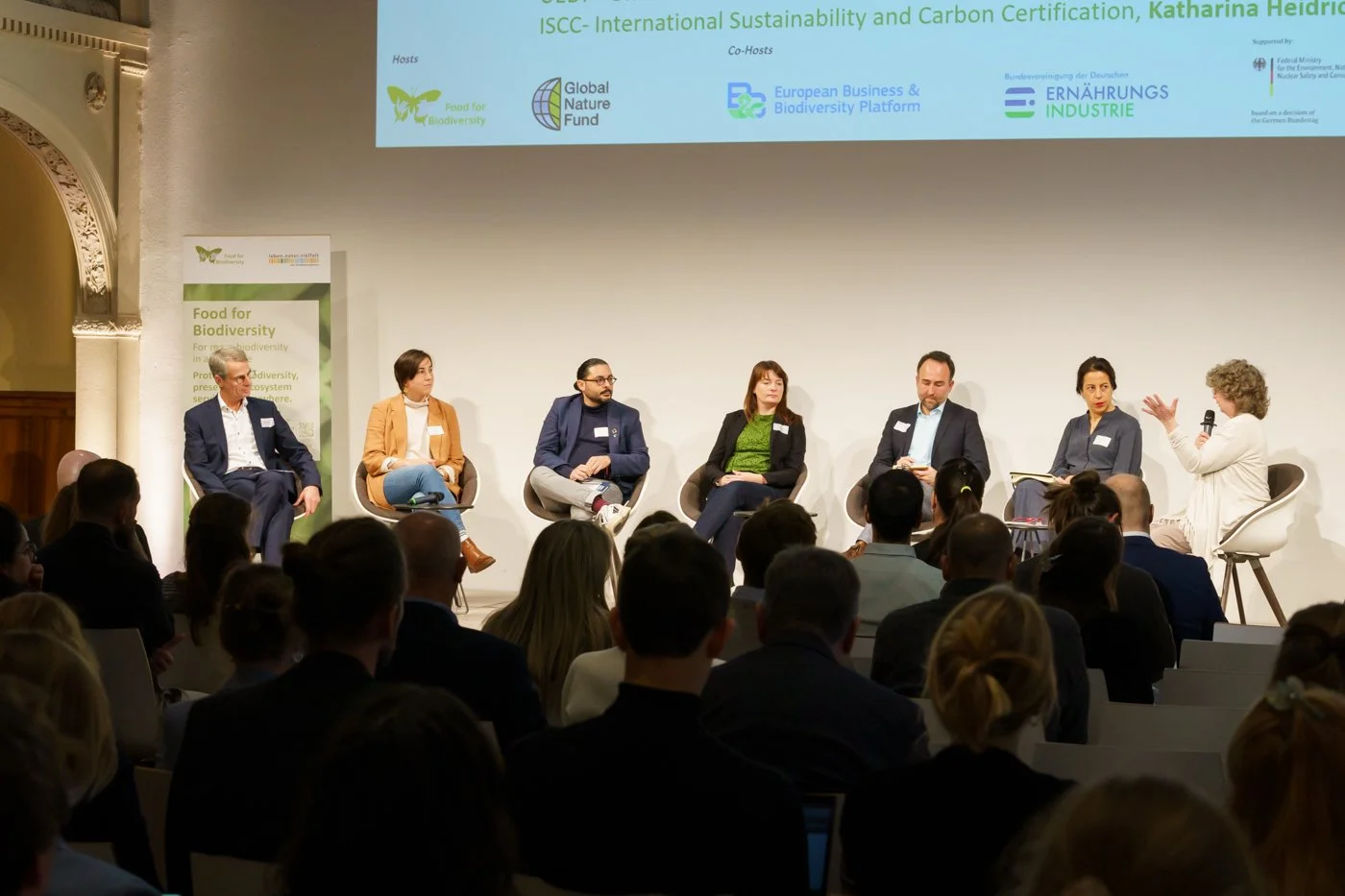European Conference: “Biodiversity in Food Supply Chains”
On 13-14 November 2024, CircHive partners Lake Constance Foundation (LCF) and EY denkstatt joint the transformative event "Biodiversity in Food Supply Chains” in Berlin. The event was dedicated to the crucial role of biodiversity in the global food supply chain. This conference spotlighted innovative approaches and best practices for protecting biodiversity while building sustainable and resilient food systems.
Attendees engaged with exciting presentations from leading experts in industry, politics, and science, participated in interactive workshops, and networked with professionals from across Europe. The networking opportunities were plentiful. Key stakeholders working in and with the European food sector were represented, including food and beverage companies, suppliers, retailers and distributors, inspection and certification organizations, policymakers and authorities, NGOs, academics and researchers.
CircHive’s conference highlights
In the session Monitoring and Reporting, Ivan Paspaldzhiev (EY denkstatt) and Sergio De Pisapia (Barilla) presented initial findings from the Barilla pilot partner project. They spoke about the scaling of biodiversity footprints and their transfer into practice.
The project partner LCF was represented by three people from the CircHive project team and took part in discussions in the various open discussion rounds. Marion Hammerl moderated the panel discussion Standards in the food industry. Together with representatives from GLOBALG.A.P., Naturland, Fairtrade International, SMK / Planet Proof, UEBT - Union for Ethical Biotrade and ISCC- International Sustainability and Carbon Certification she discussed questions like: Which biodiversity elements are well covered? What are the challenges and the limits? What data can they provide for companies to report on biodiversity?
Annekathrin Vogel and Andreas Ziermann together with Martin Georgiev (EY denkstatt) ran an information stand on the CircHive project, which was organised as part of an exhibition accompanying the programme. They held many interesting discussions.
What we’ve learned
The CircHive project belongs to a group of willing people and organisations who have recognised the challenges posed by the decline in biodiversity and are actively working to counteract it. The conference presented many exciting approaches that now need to be implemented on a broad scale. During the discussions and presentations, four key points were identified that pave the way for concrete progress:
Data as a Tool, Not a Burden
While large amounts of data are collected, its actual value often remains unclear. Data should be leveraged to empower producers and suppliers, making their efforts visible, rather than merely fulfilling reporting obligations. Standardised and compatible systems, along with clear benefits for all stakeholders, are crucial to improving both acceptance and effectiveness.
Collaboration and Trust Are Essential
Protecting biodiversity requires close, cross-sector collaboration. Trust between farmers, companies, NGOs, and other stakeholders is key. Sharing knowledge—including failures—is essential to scaling successful approaches and ensuring their long-term integration.
From Talk to Action: Pragmatism Over Perfection
A clear takeaway from the conference: We must now shift from pilot projects to scalable solutions that achieve widespread, measurable impact. Although there are different actors with various approaches, producers on multiple locations, this diversity of strategies should not hinder progress. The guiding principle is clear: pragmatism over perfection.
Biodiversity as a Strategic Opportunity
Biodiversity is not only an ecological necessity but also a strategic opportunity to minimise risks and build long-term resilience. The focus should shift from merely viewing costs to recognizing the benefits of biodiversity measures—from resilient supply chains to sustainable business models.
Acting for a biodiversity-positive future
The conference made it clear: biodiversity is no longer a side topic. Pragmatic, scalable solutions, better use of data, and trust-based collaboration among all actors are urgently needed. Together, we can transition to sustainable food systems. Perfection must not block progress—now is the time to act.



